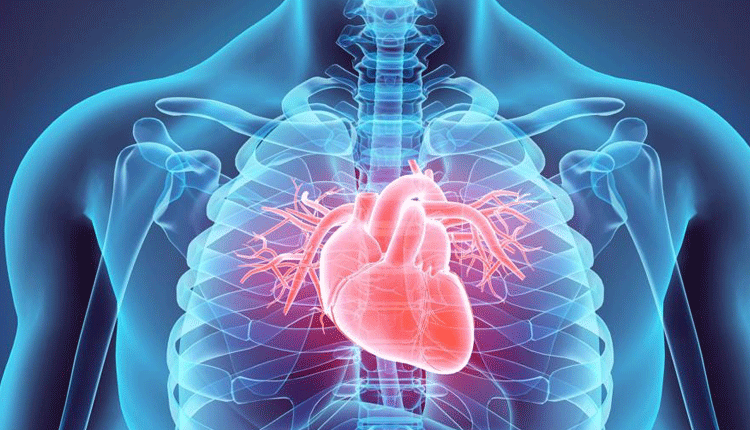Ten fascinating facts you need to know about the heart

It’s possible to have a broken heart
It’s called broken heart syndrome and can have similar symptoms as a heart attack.
The difference is that a heart attack is from heart disease and broken heart syndrome is caused by a rush of stress hormones from an emotional or physical stress event.
Many heart attacks occur in the mornings
Researchers have noticed that heart attacks are particularly common during cold seasons and in the mornings.
This is believed to be the case because the body has to work harder to pump blood, which is thicker in the morning.
At the same time, in the morning, the body’s stress hormones, such as cortisol spike.
Some studies have found that the morning may be the most dangerous time to experience a heart attack, as these heart attacks tend to be more severe.
Heart attack risk spikes on Christmas eve
A UK study found out that the number of cardiac deaths is higher on December 25 than on any other day of the year, second highest on December 26, and third highest on January 1.
Possible reasons could be unhealthy changes in diets, higher alcohol consumption, stress from family interactions and strained finances.
Moreover, more people may ignore the signs and symptoms of a heart attack during the holidays, dismissing them as just stress from running so many errands.
Heart cancer is rare
While the heart is susceptible to a number of diseases, it is rare for cancerous cells to grow in the heart.
When cells grow and divide, a mutation can occur which can be genetic or because of environmental or lifestyle factors.
When the mutated cells start to grow, they can form a cancerous tumour, which can then spread.
But cardiac muscle cells are so intricate and have such specific mechanisms and functions, that these cells can’t simply divide and grow.
Ironically, this is what makes the heart so prone to damage in the first place.
When the heart is damaged, it’s hard for it to regenerate and repair itself. And this is the very reason why heart cancer is so rare because even when there are abnormal cells present, they can’t recreate quickly enough to form a malignant tumour.
However, it is possible for cancer to spread to the heart from other cancers, such as melanoma, leukaemia, lung cancer or breast cancer.
Medical experts refer to this as metastatic rather than “heart” cancer. These cancers, when metastasised, reach the heart commonly through the bloodstream, or by direct invasion through the surrounding tissues, such as in breast cancer.
A woman’s heart beats faster than a man’s
A woman’s heart is about two-thirds the size of a man’s, weighing an average of 120 grammes, compared to an average 180 grammes in the male. However, because the female organ is smaller, it beats slightly faster to make up for its size.
While the average male heart beats 70 to 72 times a minute, an adult woman’s beats 78 to 82 times a minute.
However, heart experts say this has no effect on women’s overall heart health during their lifetimes or the type of heart problems they develop.
It’s probably down to numerous things such as body size, heart size and hormones
Urinating in a pool is dangerous for your heart
Though definitely unsanitary, peeing in a pool might seem harmless for your health. After all, urine is sterile, as is chlorine.
As it turns out though, urine and chlorine create dangerous chemicals when combined.
In fact, that so-called “pool smell” is actually the scent of those chemicals, as Xing-Fang Li, an environmental chemistry professor who conducted research on the topic found out.
One of those chemicals—cyanogen chloride—is classified as a chemical warfare agent and can damage your heart and lungs. Other byproducts, called nitrosamines, can even cause cancer.
Owning a dog can lower your risk of heart disease
High levels of chronic stress are a leading cause of heart disease. But you know what helps decrease stress? Having a dog!
According to the American Heart Association, dog owners typically have lower blood pressure and cholesterol levels, both of which decrease your risk of cardiovascular disease.
So, if your life is impacted by stress, you might want to consider adopting a canine friend.
Spending time with friends and family lowers heart attack risk
Studies have found that people who live by themselves are two times more likely to have a heart attack than people who live with a roommate or partner.
Research has long suggested that regular social interaction and social connectedness play an important role in overall health, as well as heart health.
One hypothesis explaining this effect is that spending time with friends and family can mitigate stress and fend off depression—both of which are risk factors for heart disease.
Another study found that laughing can protect heart health, as it causes blood vessels to relax and expand—again, pointing to the health benefits of spending time with close friends.
It’s okay to sneeze
A common myth says that your heart stops when you sneeze, but people often exaggerate this. It may seem that your heart pauses as you sneeze.
But you actually experience alterations in blood flow. Your blood flow decreases, but your heart compensates for this change by adjusting its beat.
Only cornea does not get blood from the heart
The heart works hard to pump blood through body’s blood vessels. There’s one area that doesn’t receive any blood, making it the exception — cornea. There are two reasons for this.
First, the cornea lacks blood vessels, which is evident due to their transparency. Second, corneas receive oxygen from the air as well as nourishment from tear fluid.










